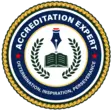Licensure Process
- Preliminary Conference
The first step in the licensure process is to contact the UNC System Office to arrange a preliminary conference. This conference aims to clarify the standards and procedures for applying for licensure. It is a one-time meeting scheduled at a mutually convenient time and location.
- Application for Licensure
The first step in the licensure process is to contact the UNC System Office to arrange a preliminary conference. This conference aims to clarify the standards and procedures for applying for licensure. It is a one-time meeting scheduled at a mutually convenient time and location.
- Site Visit
If the application suggests that the proposed degree activity will meet the necessary standards, the UNC System Office may arrange a site visit by a team of examiners. This team, comprising UNC System Office staff and external experts, will review the institution’s documentation and facilities in detail. Site visits are mandatory for institutions not previously licensed and those expanding into new degree levels or fields of study.
- Report and Board Action
Report and Board Action: The Board’s Decisions Matter













